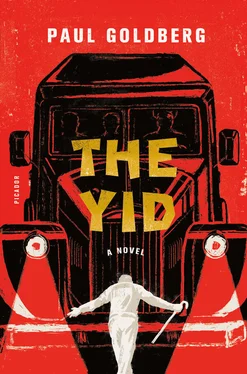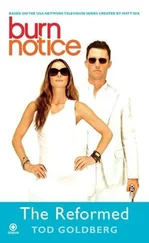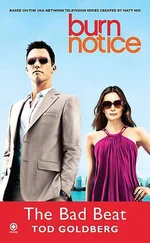Translation: Your career is done, perform your dance of the dying swan, make us cry if you still can, and, please, zayt azoy git , have the decency to stiffen after the curtain falls.
This attack occurred at a theater-wide meeting. Some people laughed: a few disgruntled actors, the janitor, the fireman.
In an article about the staging of Lir , Mikhoels attempted to obfuscate this ugly moment:
“My life in 1932 was filled with grief. Over a very short time, I lost several people who were dear to me. These great losses affected me so profoundly that I started to contemplate leaving the stage altogether. The prospect of going onstage to play my former roles became intolerable. These roles contained comic episodes, which amused the audience. To me, laughter was alienating. I was envious of people who could laugh, since at the time I was internally deprived of this ability. I had made a firm decision to abandon stage. But my theater comrades had resolved to return my interest to life and work, and with increasing frequency they said, ‘When you play Lir …’”
Mikhoels accepted Levinson’s challenge.
He performed that swan song, and he kept its beat, and he didn’t die for another decade and a half, an era when people vanished by the million.
In the same article, Mikhoels describes Levinson as a hard-working mediocrity with a “nasal voice, lower than average musicality, and less than a natural sense of rhythm.”
Worse, “fate didn’t give him the opportunity to obtain proper training,” Mikhoels wrote. “As compensation, he was given immense determination, stamina, and an overarching drive to prevail by force. That’s how he educated himself. Everything he knows he picked up on his own, by overpowering his nature. Now his knowledge is considerable, albeit empirical, forced and disjointed. Like most actors in our theater, Levinson is a passive thinker. He lacks the capacity to generalize.”
In his universe, Mikhoels was both the Creator and the Master.
Not only could he direct the director directing him as an actor, but he could write a review, publicly humiliating members of his own ensemble, on the pages of the journal Teatr.
* * *
These were the kindest words Mikhoels could squeeze out of himself on the subject of Levinson.
To be an actor, especially if your main interest is comedy, you have to read voraciously, and voracious reading was not for Levinson, not because he couldn’t read, but because he couldn’t sit. He needed to be engaged, he needed something to do. His brain was powerful, but not nimble. He had only one joke. It was done with a straight face and was rooted in his character. Zuskin was much funnier. Mikhoels was in a different league altogether.
GOSET employed a plethora of actors who had been instructed in a variety of training schools, but the majority had no training at all.
Levinson was squarely in that majority.
He was an autodidact, and autodidacts are rarely nimble thinkers. They can amass facts — vast storerooms of facts — but they are too uncertain of themselves to get comfortable with doubt, humility, and nuance. Indeed, the more their storerooms of facts expand, the less flexible they become. They start believing that no one understands them, that their critics are conceited fools.
Anyone can amass facts, but it takes wisdom to connect them.
Mikhoels saw der komandir as his responsibility, his potential vulnerability.
Why did this soldier need theater? And why did he have to end up at Mikhoels’s theater?
Clearly, Levinson wasn’t, strictly speaking, an actor. Was he even— truly —a soldier? Levinson’s stubbornness — punctuated by infrequent eruptions of genius — could reduce directors to tears. Was this man ever able to take orders from a higher-ranking officer? He may have been highly effective in the forest, as Robin Hood, but not reporting to Robin Hood. He would have excelled in the Paris Commune, on the barricades.
And surely he was just the sort of royte komandir —red commander — you would want to terrorize the White Army and its foreign sponsors along the Trans-Siberian Railroad, as he so famously did.
Who would give you orders in the Siberian taiga? The howling wind? The wolves? The hibernating bears? It had to be Levinson versus the world, Mikhoels presumed.
At another time, Mikhoels might have added that a man of Levinson’s makeup would have done exceedingly well leading death-defying feats of ragtag fighters in the Jewish ghettos of Central European cities and — of course — the forests, but that calamity was a few years away at the time Mikhoels wrote his vicious screed in Teatr.
Since Levinson and Mikhoels were the sort of adversaries who hardly speak to each other, Mikhoels had no way to determine whether Levinson was (1) the kind of brigand who seeks glorious death in battle, or (2) the kind whose objective is to kill and flee. How do you ascertain whether you are dealing with a Type 1 or Type 2 lunatic, except by spending time with said lunatic, observing him in action, perhaps even drinking vodka with him in order to make a conclusive diagnosis? This Mikhoels couldn’t force himself to do.
What Mikhoels understood was indeed troublesome. What if something in Levinson’s head went cosmically wrong and he started to act? What if he decided to form a terrorist group or ignite a slave rebellion? Wouldn’t he (Mikhoels) be held accountable for this act of madness?
To analyze Levinson, Mikhoels resorted to the shortcut of the Stanislavsky Method, a philosophy of sorts that directs the actor to apply his entire being to portray the characters that appear onstage. Mikhoels didn’t use the method. He shaped characters out of aspects of himself, just like God created Eve out of one of Adam’s ribs rather than the entire Adam. With leftover ribs, an actor can shape a variety of very different characters. Mikhoels had a storeroom of characters which he could combine as he saw fit. He knew Stanislavsky well enough to accept his assurances that there was no such thing as a single Stanislavsky method. He had taught different approaches at different times and in different settings.
Still, Mikhoels found it useful to consider whether Levinson’s experience informed the characters he portrayed onstage or whether the characters he portrayed informed Levinson’s experience.
In his case, it was clearly the latter.
Let us unpack this dichotomy. When your characters inform your experience, you are intent on making the world conform to your will; you are creating the universe in your own image; you become the Creator. Only a playwright is entitled to such power.
If your experience shapes your characters, you are safe. You know where the stage ends. You realize that after you go home, you stop being Kinig Lir and become yourself. Your door is firmly closed to allowing characters to shape experience, and you will have no trouble refraining from slaying villains on Groky Street.
If you are allowing the characters you portray to shape your experience offstage, could it be that you are also invisibly allowing your experience to shape your characters? You could be locked in a cosmic spiral — cosmic because, having relinquished gravity, you are unable to distinguish your up from your down as you speed through the dimensions of madness.
* * *
In 1936, while Lir was still running, Levinson heard a rumor that his nemesis had authorized a series of concept drawings of King Richard.
Skeptical of putting on another play about a monarch, Levinson went to the Lenin Library and located the text of Richard II in a prerevolutionary translation into Russian. He was preparing a case against the play, which he was going to present to the meeting of the GOSET collective, in conjunction with a motion to relieve Mikhoels of his duties as artistic director.
Читать дальше












